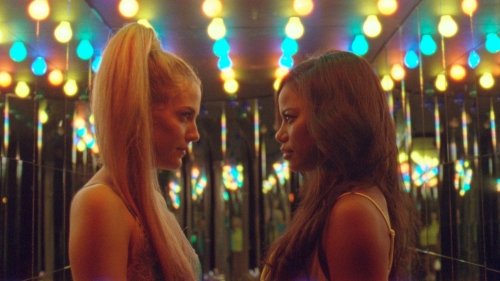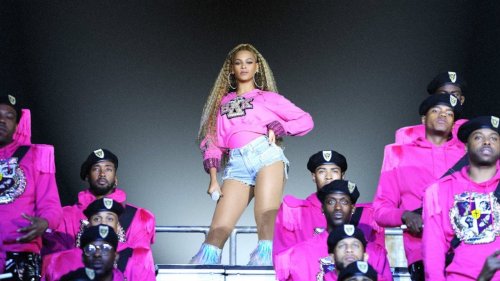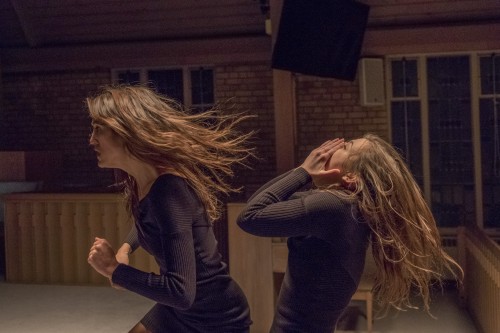
One day feels like an eternity in Les Misérables. And in this latest film from French filmmaker Ladj Ly, he uses this kind of deep-dive approach into a specific day in a specific place to create a larger, vital look at a part of French society that rarely gets depicted in popular culture.
The film is not an adaptation of Victor Hugo’s novel, though it does share a setting and some general themes, which are further underscored by a couple of direct references to the more famous Les Misérables. However, it certainly doesn’t feel like a heavy-handed homage, with Ly taking a distinctive and hyper-modern perspective with his story. In this contemporary version of France’s Montfermeil district, the neighbourhood is riddled with gang dynamics, police corruption, and a rag-tag group of children largely left to fend for themselves in their sometimes-punishing environment.
Our entry point to this insular neighbourhood is Stéphane (Damien Bonnard), a police officer who’s just been transferred to the area, joining a pair of veterans of the district, Chris (Alexis Manenti) and Gwada (Djibril Zonga). And for his first time on duty, Stéphane is thrown into the job headfirst on a summer day that notably includes a World Cup victory, punishingly hot temperatures, and a lion cub who’s been taken from a travelling circus passing through.
As Chris and Gwada lead Stéphane through a day on the beat and introduce him to some of the neighbourhood’s key figures, it becomes clear that there is a delicate ecosystem at play. The police officers’ roles are sometimes as diplomat and mediator, and other times as unscrupulous (and active) participants in the shadier side of the social hierarchy. And then, when things on this particular day inevitably boil over and violence punctuates that balance, the inner framework all starts to crumble.
From the start, Stéphane quickly becomes aware of the unconventional (and certainly not above-board) tactics Chris and Gwada bring to their work, and his moral struggle with complicity becomes a major crux of the film. In that sense, it’s very akin to Training Day, and the power dynamics between Stéphane and Chris, in particular, in some ways clear the path for how the rest of the story will unfold.
One of Ly’s greatest strengths here as a storyteller is how clearly he depicts the complicated web of relationships in the film. As viewers, we meet every character we need to – from the main trio to the smallest bit player – introduced in a concise way that tells us about who they are and sets the stage for how they’ll come back into play later on.
This exceptionally efficient storytelling is one of the major contributions to the film’s propulsive pace. If you have a (false) perception that “foreign” films are often slow or meandering, you need to check this one out. Though not an action film in the typical sense of the genre, there is an hour-long or so stretch in the middle that’s as well-paced and compelling as any other 2019 film I saw.
Because I was so locked in for a big portion of the film, though, it made it feel jarring when the story later takes an unexpected jump in time. To say more would get into spoilers, but I was surprised by Ly’s choice to somewhat break the tension that he’d been building over the course of the one increasingly crazy day much of the film spends showing. For me, the film struggled to fully get back on its feet after that point, ending in a way that felt inevitable but less impactful than it could have.
Slightly wobbly ending aside, though, Ly creates a visceral and richly-woven world. The cinematography feels naturalistic – hard-hitting without ever feeling intrusive – and the cast of characters also feel extremely believable throughout. As a viewer, we spend by far the most time with the main trio of police officers, and seeing the world largely through their skewed perspective feels like an unexpected and unique way for Ly to tell a story that is at its core actually about the mistreatment and struggle of the underclass they’re supposedly protecting. And indeed, Ly takes many opportunities throughout to buck what could otherwise feel tired and expected. There is a nuance to much of what happens (and even in which characters enact which type of violence) that complicates things far more than this type of crime story often would.
Aiding the film’s complexity is its cast, which is extremely strong across the board. All three of the main actors are excellent, creating (with the script, co-written by Ly and Manenti) characters that feel refreshingly well-rounded. Zonga, in particular, brings an unspoken soulfulness and duality in his performance. He subtly leans into the subtext surrounding the fact that Gwada is the sole black officer in the group (who was himself raised in Montfermeil) and the film is all the more impactful for it.
Les Misérables tells its story through the lens of one highly specific, insular neighbourhood, yet it also feels grand in scope. And it balances those two modes of operation remarkably well. It’s making a point to touch on many timely themes, seemingly acting more broadly (if you want it to) as a critique of French society as a whole. Much like the story it borrows its name from, Ly’s tale presents fascinating, richly told characters through a well-constructed story. It also powerfully highlights internalized, structural problems that we as people – no matter how much time passes – can never quite seem to resolve.





















